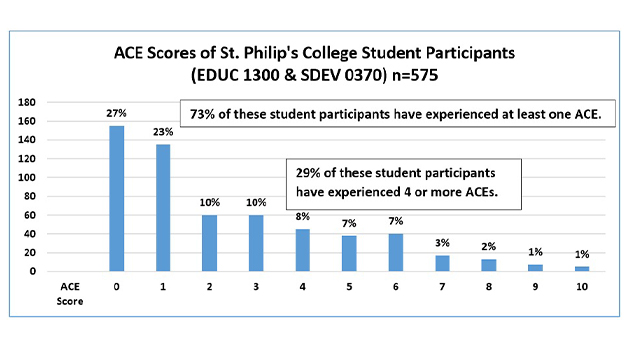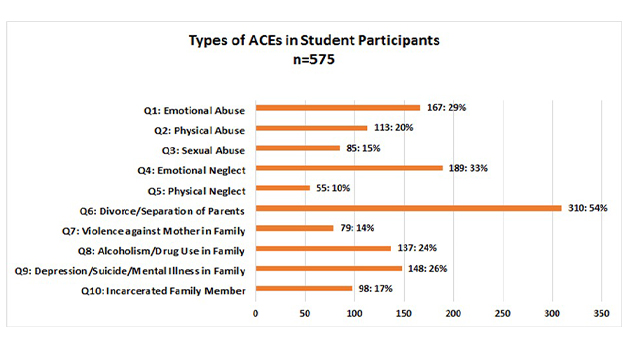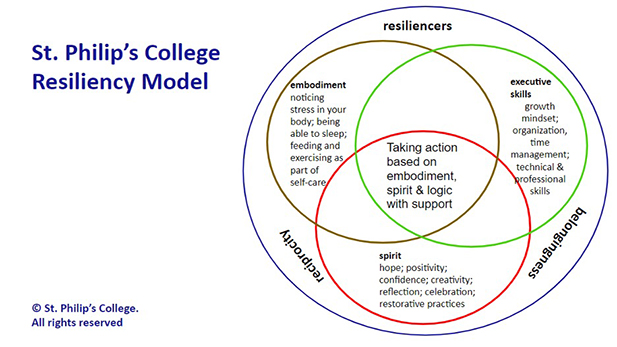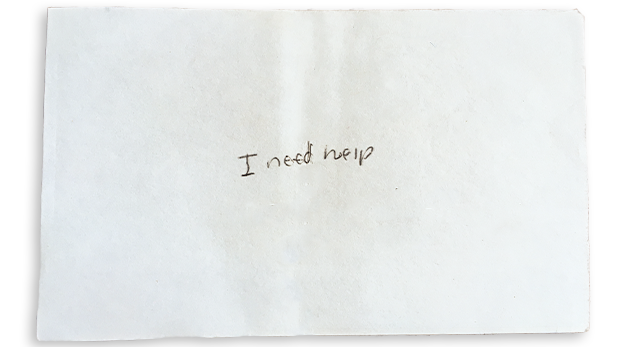SPC Resiliency Study

Welcome to the SPC Resiliency Study and the latest findings out of this longitudinal research.
Story Behind the StudyThe SPC Resiliency Study evolved from students’ research conducted in Spring 2017 in a Composition II course. Six students believed that trauma was a significant challenge to students’ success, and so they completed a non-scientific study collecting Adverse Childhood Experiences (ACE) scores from SPC students on anonymous index cards. One of the cards shared a message rather than a number: I need help. In response to that call for help, their teacher and the College’s personal counselor designed an IRB-approved, longitudinal study that began in Fall 2017 that has had over 600 student volunteer participants. |
|
Demographics
This study focuses on first-time-in-college students (those who have just graduated from high school or are taking college classes for the first time) who were enrolled in EDUC 1300 or SDEV 0370 during the Fall 2017, Spring 2018, or Fall 2018 semesters. These participants trend younger than all other SPC students but reflect the College’s gender and ethnicity demographics.
Resiliency Study’s Goal
The study seeks to identify ways that the College can support and improve student success.
Phase I Research Questions & Findings
- What are SPC students’ ACE scores?
Most SPC students (72% of participants) have experienced at least one category of toxic stress.
- What types of ACEs have SPC students experienced?
SPC students reported these types of adversity:
- How do SPC students’ ACE scores relate to GPA and Course Completion rate?
The preliminary answer is: ACE scores do not relate to GPA or Course Completion rates. We are continuing to analyze this question.
Qualitative Interviews: Understanding context
In order to understand students’ ACE scores and experiences better, we interviewed volunteer participants who shared some of their life stories and their academic stories and the connections between the two. We are continuing to interview participants and analyze these data.
Developing a Resiliency Model and Inventory
This study has led to the development of a new model for resiliency that we continue to validate. The model includes a multidimensional perspective of resiliency that combines individual sets of skills within relationships and action.

Researchers
| Eitandria Tello, MA, LPC egatlin2@alamo.edu
|
Jen Osborne, PhD josborne@alamo.edu
|
With major contributions from Ajani Abdul-Khaliq, Ph.D. in the areas of data analysis and research design











